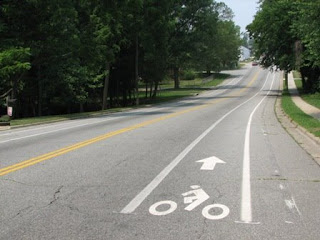 - a busker; busk (v)
- a busker; busk (v) - toddler
- toddler - lanes
- lanes- astoninshing: (adj) very surprising.
- cover-up sth: phrasal verb [M] to stop people discovering the truth about something bad: The company tried to cover up its employment of illegal immigrants. [encobrir totalmente]
- due: (adj) expected to happen, arrive, etc. at a particular time: What time is the next bus due?The next meeting is due to be held in three months' time.Their first baby is due in January.
- electronic tagging noun [U] the use of an electronic device which is attached to a person who has committed a crime, so that the police know where they are
- forensic: adjective [before noun] related to scientific methods of solving crimes, involving examining the objects or substances that are involved in the crime: forensic evidence/medicine/scienceForensic examination revealed a large quantity of poison in the dead man's stomach.
- keep (sb/sth) off sth (NOT GO) phrasal verbto not go onto an area, or to stop someone or something going onto an area: There was a notice saying 'Keep off the grass'.
- probation: noun [U] 1- a period of time when a criminal must behave well and not commit any more crimes in order to avoid being sent to prison: He was fined and given two years' probation.The judge put him on probation for two years. He served a year in prison and was then let out on probation.
- startling: adjective surprising and sometimes worrying: startling results He made some startling admissions about his past. [assustador, impressionante]
LISTENING (page 141)
- blare: verb [I or T] to make an unpleasantly loud noise: The loudspeakers blared across the square. The radio was blaring (out) martial music.
- be out of the woods INFORMAL to no longer be in danger or difficulty: The club has been given funding for another year, but it's not out of the wood yet.
- brake: noun [C] a device which makes a vehicle go slower or stop, or a pedal, bar or handle which makes this device work: She had no brakes on her bicycle. The taxi driver suddenly UK applied/US put on his brakes. INFORMAL I slammed on (= quickly used) the brake, but it was too late. All our new models have anti-lock brakes.
- conspicuous: adjective very noticeable or tending to attract attention, often in a way that is not wanted: In China, her blonde hair was conspicuous. He tried not to look conspicuous and moved slowly along the back of the room. NOTE: The opposite is inconspicuous.
- crash barrier noun [C]: at the edge of a road, to help prevent accidents
- fling (MOVE/DO): verb [T usually + adverb or preposition] flung, flung to move or do something quickly and energetically: She flung her arms around his neck. The door was flung open by the wind. Sergei flung himself down on the sofa. INFORMAL Let me just fling (= quickly put) a few things into my bag, and I'll be right with you. INFORMAL They were flung (= quickly put) in prison.
- fling (MOVE/DO): verb [T usually + adverb or preposition] flung, flung to move or do something quickly and energetically: She flung her arms around his neck. The door was flung open by the wind. Sergei flung himself down on the sofa. INFORMAL Let me just fling (= quickly put) a few things into my bag, and I'll be right with you. INFORMAL They were flung (= quickly put) in prison.
- frantic (HURRIED): adjective done or arranged in a hurry and a state of excitement or confusion: Share prices have soared to a new all-time high in a day of frantic trading on the stock market. Rescuers were engaged in a frantic all-night effort to reach the survivors before their supply of air ran out.
- grab (TAKE WITH HAND): verb [I or T] -bb- to take hold of something or someone suddenly and roughly:A mugger grabbed her handbag as she was walking across the park.He grabbed (hold of) his child's arm to stop her from running into the road.
- overtake: v [I or T] UK (US pass) to come from behind another vehicle or a person and move in front of it: Always check your rear view mirror before you overtake (another car).
- swerve: verb 1- [I] to change direction, especially suddenly: The bus driver swerved to avoid hitting the cyclists.
- slam: verb -mm- 1- [I or T] to (cause to) move against a hard surface with force and usually a loud noise: The wind made the door/window slam (shut). Close the door carefully, don't slam it. He slammed the brakes on (= used them quickly and with force) when a child ran in front of his car. I had to stop suddenly, and the car behind slammed into the back of me.
- toddler: a young child, especially one who is learning or has recently learned to walk

No comments:
Post a Comment